Filter by
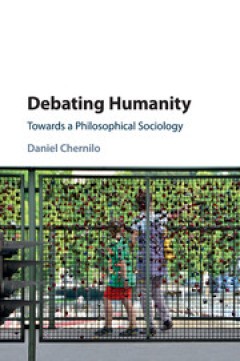
Debating Humanity : Towards a Philosophical Sociology
The question 'what is a human being?' remains one of the most vexing intellectual tasks. Debating Humanity reconstructs how contemporary sociologists and philosophers – among others, Arendt, Taylor, Archer and Boltanski – understand the key anthropological skills that define our shared membership to the human species.
- Edition
- -
- ISBN/ISSN
- -
- Collation
- -
- Series Title
- -
- Call Number
- 210 CHE d
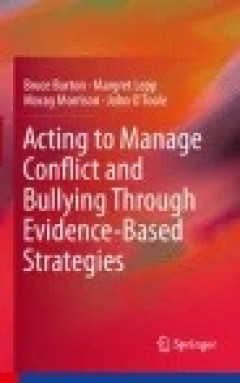
Acting to Manage Conflict and Bullying Through Evidence-Based Strategies
This book offers a complete and detailed account of the evolution of an internationally successful, evidence-based program that has been the result of almost two decades of action research into conflict and bullying. It addresses one of the most serious problems encountered in schools and work places worldwide: that of bullying and inter-personal conflict. The book presents a comprehensive acco…
- Edition
- Ed. 1
- ISBN/ISSN
- 978-3-319-17882-0
- Collation
- XII, 199
- Series Title
- -
- Call Number
- 364 ACT a
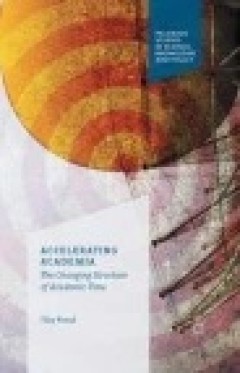
Accelerating Academia: The Changing Structure of Academic Time
Filip Vostal examines the changing nature of academic time, and analyzes the 'will to accelerate' that has emerged as a significant cultural and structural force in knowledge production.
- Edition
- Ed. 1
- ISBN/ISSN
- 978-1-137-47360-8
- Collation
- XI, 242
- Series Title
- -
- Call Number
- 372.8 VOS a
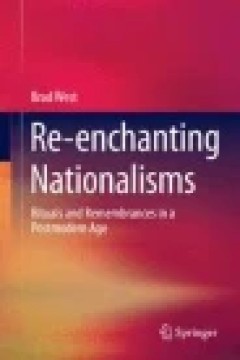
Re-enchanting Nationalisms: Rituals and Remembrances in a Postmodern Age
This book provides original insight into the way we now engage and remember national history. Drawing on fieldwork and analysis of international case studies on state commemoration, memorialization, recreational and tourism and times of disaster and crisis, the author demonstrates that not only does the nation frequently retain a strong cultural relevance in our global world but that the emerge…
- Edition
- -
- ISBN/ISSN
- 978-1-4939-2513-1
- Collation
- -
- Series Title
- -
- Call Number
- 301
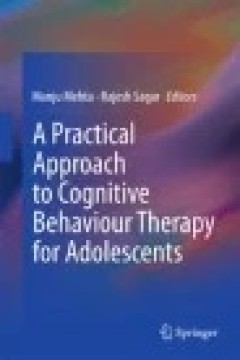
A Practical Approach to Cognitive Behaviour Therapy for Adolescents
This volume discusses adolescent mental health concerns in non-Western contexts and situations, ranging from common mental disorders to building life skills. It combines previous literature and empirical work on various disorders to provide a comprehensive account of cognitive behaviour therapy (CBT) for adolescents. The volume covers a wide spectrum of conditions, ranging from anxiety to affec…
- Edition
- Ed. 1
- ISBN/ISSN
- 978-81-322-2241-5
- Collation
- -
- Series Title
- -
- Call Number
- 616.8914 PRA p
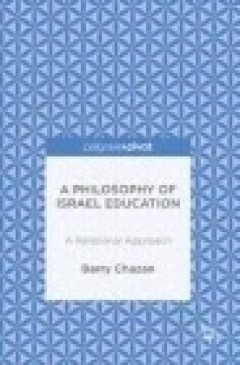
A Philosophy of Israel Education: A Relational Approach
This book develops a new philosophy of Israel education. “Person-centered” Israel education is concerned with developing in individual learners the ability to understand and make rational, emotional, and ethical decisions about Israel, and about the challenges Israel regularly faces, whether they be existential, spiritual, democratic, humanitarian, national, etc. Chazan begins by laying out…
- Edition
- Ed. 1
- ISBN/ISSN
- 978-3-319-30779-4
- Collation
- -
- Series Title
- -
- Call Number
- 200.11 CHA p
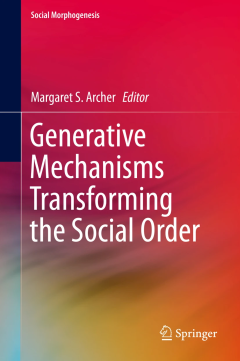
Generative Mechanisms Transforming the Social Order
Margaret Archer heads the project at EPFL 'From Modernity to Morphogenesis'. She was elected as the first woman President of the International Sociological Association at the 12th World Congress of Sociology. She is a founder member of both the Pontifical Academy of Social Sciences and the Academy of Learned Societies in the Social Sciences and is a trustee of the Centre for Critical Realism. S…
- Edition
- -
- ISBN/ISSN
- 978-3-319-13772-8
- Collation
- VIII, 248
- Series Title
- -
- Call Number
- 301 Gen
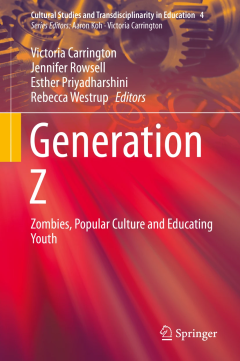
Generation Z
This book argues that the mythic figure of the zombie, so prevalent and powerful in contemporary culture, provides the opportunity to explore certain social models – such as ‘childhood’ and ‘school’, ‘class’ and ‘family’ – that so deeply underpin educational policy and practice as to be rendered invisible. It brings together authors from a range of disciplines to use contemp…
- Edition
- -
- ISBN/ISSN
- 978-981-287-932-5
- Collation
- XIII, 187
- Series Title
- -
- Call Number
- 301 Gen
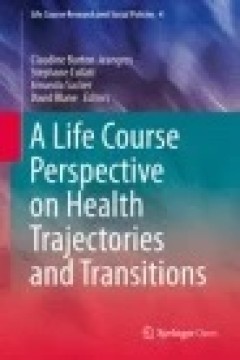
A Life Course Perspective on Health Trajectories and Transitions
This open access book examines health trajectories and health transitions at different stages of the life course, including childhood, adulthood and later life. It provides findings that assess the role of biological and social transitions on health status over time. The essays examine a wide range of health issues, including the consequences of military service on body mass index, childhood…
- Edition
- Ed. 1
- ISBN/ISSN
- 978-3-319-20484-0
- Collation
- -
- Series Title
- Life Course Research and Social Policies
- Call Number
- 614.4 LIF l
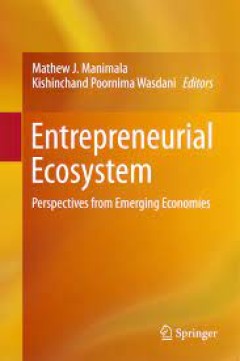
Entrepreneurial Ecosystem Perspectives from Emerging Economies
Economic development is a priority for all nation-states, whether developing or developed. In recent times, a few among the developing nations – often referred to as the emerging economies – have attracted the world’s attention because of their fast pace of economic growth. While the similarities among these nations (for example the BRICS) in the pattern of their economic growth are highl…
- Edition
- -
- ISBN/ISSN
- 978-81-322-2086-2
- Collation
- 42 b/w illustrations
- Series Title
- -
- Call Number
- -
 Computer Science, Information & General Works
Computer Science, Information & General Works  Philosophy & Psychology
Philosophy & Psychology  Religion
Religion  Social Sciences
Social Sciences  Language
Language  Pure Science
Pure Science  Applied Sciences
Applied Sciences  Art & Recreation
Art & Recreation  Literature
Literature  History & Geography
History & Geography